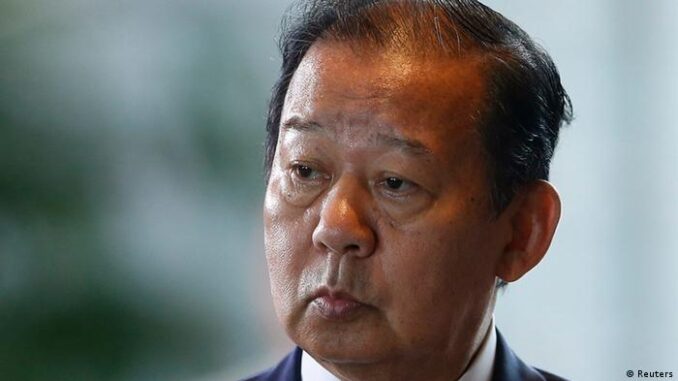
The government of Japan and the International Olympic Committee are determined to hold the Olympic Games in Tokyo this summer. In February 2021, G7 leaders also supported Japan’s commitment to holding the Olympics and Paralympics in Tokyo (Tokyo 2020) “in a safe and secure manner … as a symbol of global unity in overcoming covid-19.”1 While the determination is encouraging, there has been a lack of transparency about the benefits and risk, and international mass gathering events such as Tokyo 2020 are still neither safe nor secure.
The world is still in the middle of a pandemic. SARS-CoV-2 variants are an international concern, causing a resurgence of covid-19 globally.2 We must accelerate efforts towards containing and ending the pandemic by maintaining public health and social measures, promoting behaviour change, disseminating vaccines widely, and strengthening health systems. Substantial scientific advancements have occurred over the past year, but vaccine rollout has been inequitable, reducing access in many low and middle income countries. Huge uncertainty remains about the trajectory of the pandemic.3
Although a special scheme for vaccinating athletes—marshalled by the International Olympic Committee4—may help save lives, it could also encourage vaccine diplomacy, undermine global solidarity (including the Covax global access scheme), and promote vaccine nationalism. Full transparency and clear lines of accountability are critical in any scheme to vaccinate athletes. Furthermore, prioritising athletes over essential workers at high risk in low and middle income countries raises ethical concerns that must be addressed.
Poor control
Unlike other countries in the Asia-Pacific region, Japan has not yet contained covid-19 transmission.5 Despite its poor performance,6 Japan still invokes exceptionalism and continues to conceptualise covid-19 within previous planning for pandemic influenza.5 The second state of emergency in the Greater Tokyo area was lifted in late March7 despite early indications of a resurgence and an increase in covid-19 patients with variants of concern, which have now spread across Japan.89
The country’s limited testing capacity and sluggish vaccine rollout6 have been attributed to lack of political leadership.5 Even healthcare workers and other high risk populations will not have access to vaccines before Tokyo 2020, to say nothing of the general population. To properly protect athletes from covid-19, Japan must develop and implement a clear strategy to eliminate community transmission within its borders,5 as Australia did before the Australian Open tennis tournament.
Japan and the International Olympic Committee must also agree operational plans based on a robust science and share them with the international community. Waiving quarantine for incoming athletes, officials, broadcasters, press, and marketing partners10 risks importing and spreading covid-19 variants of concern. While international spectators will be excluded from the games,11 cases could rise across Japan and be exported globally because of increased domestic travel—as encouraged by Japan’s official campaigns in 2020.51213 Entrants will be asked to download Japan’s covid-19 contact tracing app,10 but this is known to be unreliable.14
The maximum allowable number of domestic spectators is still pending,11 but an overwhelmed healthcare system combined with an ineffective test, trace, and isolate scheme51213 could seriously undermine Japan’s ability to manage Tokyo 2020 safely and contain any outbreak caused by mass mobilisation.
Finally, very little has been said officially about the Paralympic games and how to protect the health and rights of people with disabilities during international competition. Current plans lack detail for Paralympic athletes10 and may underestimate the risks of covid-19 to people with disabilities.
Safety first
Plans to hold the Olympic and Paralympic games this summer must be reconsidered as a matter of urgency. The whole global community recognises the need to contain the pandemic and save lives. Holding Tokyo 2020 for domestic political and economic purposes— ignoring scientific and moral imperatives—is contradictory to Japan’s commitment to global health and human security.
Preliminary qualifying competitions for Tokyo 2020 have already been suspended or postponed because of covid-19, and it is now unclear whether equity among athletes can be ensured.1516 We must reconsider this summer’s games and instead collaborate internationally to agree a set of global and domestic conditions under which international multisport events can be held in the years ahead. These conditions must embody both Olympic and Paralympic values and adhere to international principles of public health.

Be the first to comment